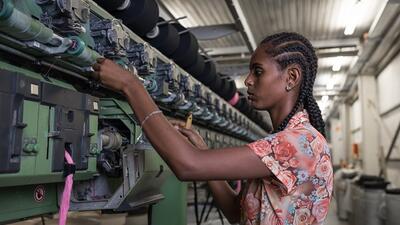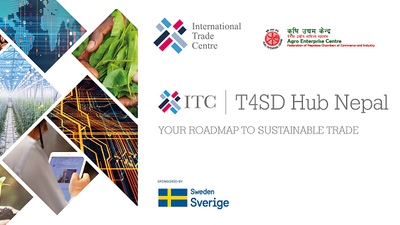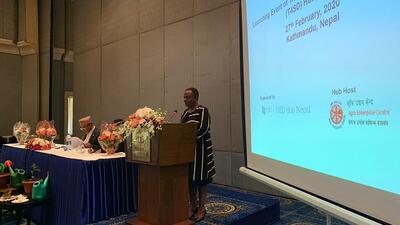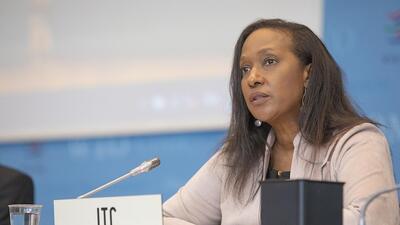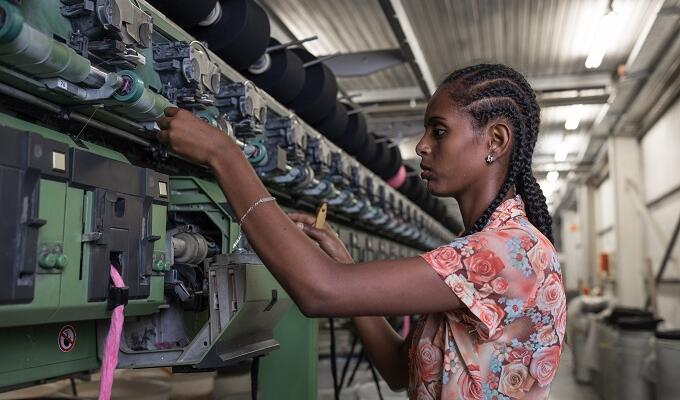
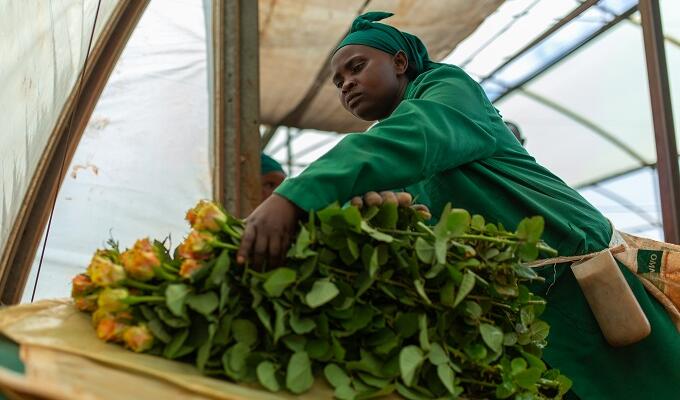
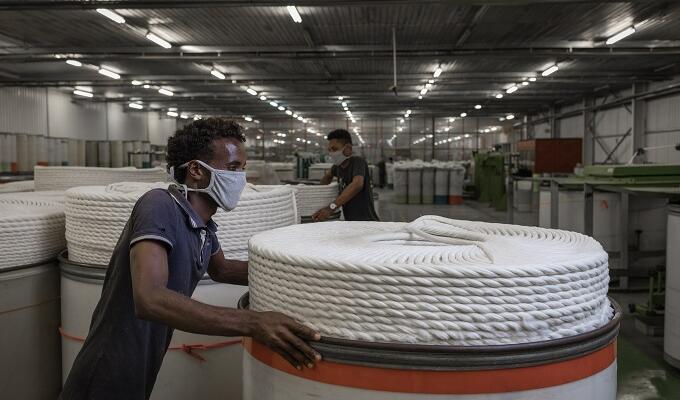
Hubs for sustainable small businesses
Trade-for-Sustainable-Development Hubs (T4SD Hubs) are new one-stop shops offering integrated solutions for small and medium-sized enterprises (SMEs) in developing countries to transition to the green economy.
The challenge
The growing consumer demand for traceable and sustainably produced products drives market opportunities in the green economy. While this provides SMEs with a chance to grow, they face challenges to become environmentally, socially and economically more sustainable.
SMEs in developing countries need assistance to:
- reduce their environmental and climate risks
- increase their resource efficiency
- engage in circular production practices
- comply with sustainability standards
While business support institutions in developing countries are interested in providing their local SMEs with the tools to enter and expand into green economy markets, they cannot often offer these services.
The solution
T4SD Hubs provide integrated solutions to SMEs in the implementation of green business practices. Hosted by Trade and Investment Support Institutions (TISIs), the Hubs act as one-stop shops offering integrated solutions for SMEs to transition to the green economy.
ITC leverages its international and local networks to enhance the capacity of T4SD Hub Host institutions to support SMEs in building sustainable business strategies to access green finance and global markets. Under this project, the T4SD Hubs are improving the capacity of around 300 SMEs in Ghana, Kenya, Laos, Nepal, Peru, and Viet Nam to implement sustainable business practices. About 1,200 SMEs will be reached through awareness-raising workshops to improve understanding of the benefits of implementing these practices.
The T4SD Hubs offer the needed tools and solutions for SMEs to and knowledge through a coaching programme focusing on critical aspects such as sustainability standards, climate resilience, resource efficiency, circular production and access to green finance and markets.
The coaching programme is a blended learning approach to e-learning and face-to-face sessions with local individuals trained by ITC. ITC works closely with each T4SD Hub Host institution to roll out the 2-year coaching programme under the following thematic areas:
- Climate Resilience
- Resource Efficient and Circular Production (RECP)
- Voluntary Sustainability Standards (VSS)
- Positioning Sustainable Products in the International Market
- Accessing Green Finance
T4SD Hubs are connected through a digital network leveraging Sustainability Map (www.sustainabilitymap.org) and regularly exchange best practices and lessons learned. T4SD facilitates dynamic conversations within the digital network to establish a community of practice.
The platform also enables the sharing of public materials and relevant information produced and promoted by the T4SD Hubs such as training materials, case studies and events. All data generated in the community will be freely and globally accessible by SMEs.
The results
Between March and July 2019, ITC launched the T4SD Hubs in Ghana, Laos, Kenya, Peru and Viet Nam.
All the launches were co-organized with the respective T4SD Hub Hosts. Each launch included a sensitization workshop on the thematic areas identified by ITC together with the T4SD Hub Host through the initial scoping study.
SMEs, policymakers, development practitioners and financiers all attended the T4SD Hub launches. More than 800 people participated across five countries and eight locations.
On average, 45% of the participants were women. Through 2-day workshops, 117 local experts were trained to become T4SD Hub coaches capable of advising local SMEs on sustainability practices.
Each T4SD Hub country implemented the first coaching programme with a total of 100 SMEs across all hubs. Every SME will have finalized a sustainable business strategy on either climate resilience, resource-efficient and circular production processes or compliance with voluntary sustainability standards by the end of the first quarter of 2020.
Ms. Linda Atibilla, CEO, Hope Givers Company Ltd., said: ‘As producers of shea butter, we generate a lot of waste such as shea kernels. The resource efficiency coaching helped us to understand how to turn this waste into alternative fuel to use in our internal operations. The coaching also made us conscious of our electricity and water consumption. Now we know how to measure the consumption of electricity and how to reuse water in operations. These measures definitely help us reduce our production costs.’
Mr. Erich Mosebach, Manager, Symboil, said: ‘Our company has been on the market for several years now. We export to Switzerland, Austria and Germany and are looking for various models on circular production. Resource Efficiency coaching helped us to identify biomass technologies that we would like to install in our factory. Thanks to the programme, we also connected to financiers such as Solidaridad and GroFin, with whom we will work to access finance and implement resource efficiency solutions.’
The future
All T4SD Hub host institutions will be fully supported in the implementation of the T4SD Hub service offering for SMEs through the first quarter of 2021.
During that time, ITC will guide each T4SD Hub Host to develop a long-term sustainability strategy and business model for integrating the Hub services into their offering. In 2021 and 2022, each T4SD Hub Host will start to pilot the service, testing it with their clients under the guidance of ITC. ITC will share all materials and guidelines, including best practice manuals and case studies with each Hub Host. ITC will continue to support each institution to build up a sustainable business model, implementing the service offering beyond the duration of the project.
In 2022, ITC will close its intervention in each target country and focus on evaluating the impact of the T4SD Hubs. ITC will compile all learnings and disseminate them online at no charge through the ITC Sustainability Map (www.sustainabilitymap.org).




